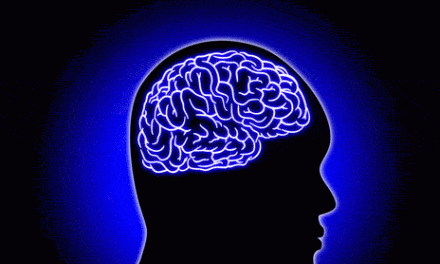Kessler Foundation, based in West Orange, NJ, announces in a news release that it has been awarded $3 million in grants by the New Jersey Commission on Brain Injury Research to help improve cognition and mobility of individuals with traumatic brain injury (TBI).
“All of the studies funded by these grants share common themes: Discoveries can easily be translated into patient care and create lasting change in quality of life,” says John DeLuca, PhD, Kessler’s senior vice president for Research and Training, in the release.
“By improving mobility, memory, learning, and processing, individuals affected by brain injury will gain independence and increase their involvement in the community and in the workplace,” he continues.
The $3 million grant was spread among the following Kessler Foundation research scientist recipients to fund their investigative projects, the release explains:
Jean Lengenfelder, PhD, assistant director of TBI Research, received $506,322 to investigate a treatment for emotional processing deficits after TBI. Difficulties in identifying emotions from facial expressions, such as a smile or frown, negatively impact social interactions, mood, and quality of life.
Lengenfelder will apply an emotional processing training protocol, proven effective for autism and schizophrenia, in individuals with TBI. She will assess effects on emotional processing, as well as on psychological, neuropsychological, and functional abilities, and correlate these effects with changes in brain connectivity using neuroimaging.
Guang Yue, PhD, director of Human Performance and Engineering Research, received $1,918,684 to lead a multi-investigator study on recovery from balance dysfunction after TBI. Yue and her team will develop a comprehensive computer algorithm for an efficient and accurate classification of brain injury.
They will also work to improve the understanding of neurophysiological adaptations—how the brain responds to stimulus and relays messages to the body—and neural plasticity—the brain’s ability to form new connections to compensate for an injury—and their relation with balance dysfunction and sensorimotor performance. They will then develop a targeted, strategic intervention for the specific type of injury, evaluate its effects in treating balance dysfunction, and measure the effects on the brain and neuromuscular system.
Cherylynn Marino, PhD, a postdoctoral fellow, received $198,645 to examine the efficacy of a mindfulness-based cognitive therapy (MBCT) program in children and adolescents with TBI. Some young people internalize struggles they face after an injury, often causing social withdrawal, depression, and anxiety; others externalize their problems, resulting in impulsive behavior and aggression.
For the study, children and adolescents will be assigned to the MBCT group or the control group. Meeting twice a week for 12 weeks, the groups will provide a comfortable therapeutic environment for individuals to learn techniques to self-regulate their emotions and behaviors. Marino’s goal is to develop an evidence base for a noninvasive therapy to treat these common social and emotional difficulties after brain injury so that adolescents are prepared for healthy personal and professional lives as adults.
James Sumowski, PhD, senior research scientist, received $175,623 to pilot a randomized controlled trial to investigate whether retrieval practice training (RPT) improves learning in adolescents with memory impairments after TBI. Existing research supports retrieval practice as an effective strategy to improve learning and memory in college undergraduates without disabilities.
Because learning and memory impairments are common after TBI, the goal of this trial is to obtain evidence that RPT is an effective tool that leads to improved academic performance and the attainment of higher education and employment.
Karen Nolan, PhD, research scientist, received $178,420 to pilot a study that determines how utilizing a robotic exoskeleton for walking therapy improves mobility in adolescents with TBI. Many injuries result in lifetime mobility impairments. Nolan believes that applying exoskeleton-assisted walking in the inpatient rehabilitation setting will improve mobility, function, social participation, and quality of life of young people with TBI.
For more information, visit www.kesslerfoundation.org
[Source: Kessler Foundation]





